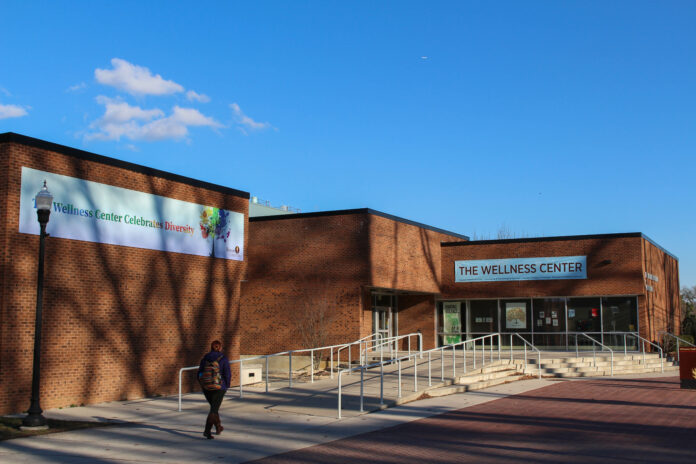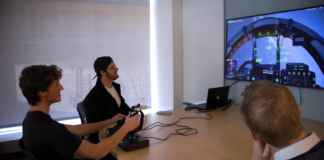As Rowan University students grapple with their mental health, the university’s Healthy Campus Initiatives (HCI) is designed to give students the tools and support necessary to maximize their college experiences by bettering their own personal wellness.
“Sometimes you just need a therapist. Sometimes you need a counselor. And sometimes you need a buddy,” said HCI Assistant Director Allie Pearce.
Pearce started at Rowan part-time in 2005, working at the center of addiction studies until moving over to HCI in 2011 when it was created.
The program has grown over the years, as Pearce started out with only one intern in 201,1 but now oversees eight undergraduate student interns, two graduate student interns and one additional professional staff member.
With her army of interns and a little over ten years of experience, Pearce and HCI cover a wide range of broad topics relevant to everyday college student life.
“We have five key content areas that we work on. Sexual health education, sexual violence prevention, mental health outreach, suicide prevention and alcohol/drug education. All of our programs and events do fall somewhat into some of those,” said Pearce.
HCI provides weekly, non-clinical group support on Mondays at 2 p.m. with SASS and Fridays at 11 a.m. with Chill and Chat. Also, throughout the year they have larger events such as Fresh Check Day, Student Mental Health Conference, Take Back the Night and the Out of the Darkness Suicide Prevention Walk.
The weekly events are extremely laid back and run by the HCI interns, with no strict guidelines of what must be done that day. You can draw or chat, and the HCI interns do not overwhelm you to participate in activities you do not want to. Chill and Chat also provides free food.
The annual events are usually larger events and cover specific topics.
Graduate student Suzie Tse is in her first semester as a Prof after graduating from Rutgers-Camden last spring with a major in finance accounting. However, during her senior year, Tse had an epiphany that she did not want to go into accounting, and with graduation on the horizon, she had to figure out what she wanted to do.
As a first-generation student, Tse sought support from her advisors and student activities during her time at Rutgers-Camden and realized she wanted to emulate the support she had gotten from others as a career.
“Whether it be physical well-being, mental well-being, social well-being, financial well-being we provide the resources, information and the people that can help them,” said Tse. “For me, personally, my most crucial goal is to help them foster a feeling of community, sense of trust and how to feel safe. I want to be a person who helps facilitate them with that relationship building.”
One of their upcoming annual events is the Mental Health Conference which takes place on Nov. 15. Graduate coordinator Jen Corcione is in charge of selecting the topics for this year’s conference, focusing on topics she wished she knew as an undergrad.
“I think how to move on after we’ve lost somebody is something that should be talked about on campus. We’ve experienced a lot of loss the past couple of years, so it would be nice to understand how to grieve in a healthy way,” said Coercion. “I also think we should talk more about having a relationship in college because I think a lot of kids get to college and whether it’s a friendship or a romantic relationship, you don’t really know what you’re doing. Trying to figure that out can be very stressful when you move to a new place.”
Students who are interested in attending the Mental Health Conference on Nov. 15 are urged to sign up prior to the event through ProfLink, but people can just show up the day of the conference as well.
While conversations about mental health are heading in the right direction, there still is a stigma attached to asking for help, as it can be viewed as a sign of weakness.
HCI aims to open students’ eyes to a new perspective of personal well-being, and that asking for help is not a weakness.
“I call it a dog poop day. You stepped in dog poop, it’s annoying but it’s not a crisis. Let’s learn first how to deal with the dog poop day knowing that there is help available if we get to crisis,” Pearce said. “But let’s figure out what we need to do on our own before it gets to that level.”
For comments/questions about this story tweet @TheWhitOnline or email thewhit.newseditor@gmail.com






